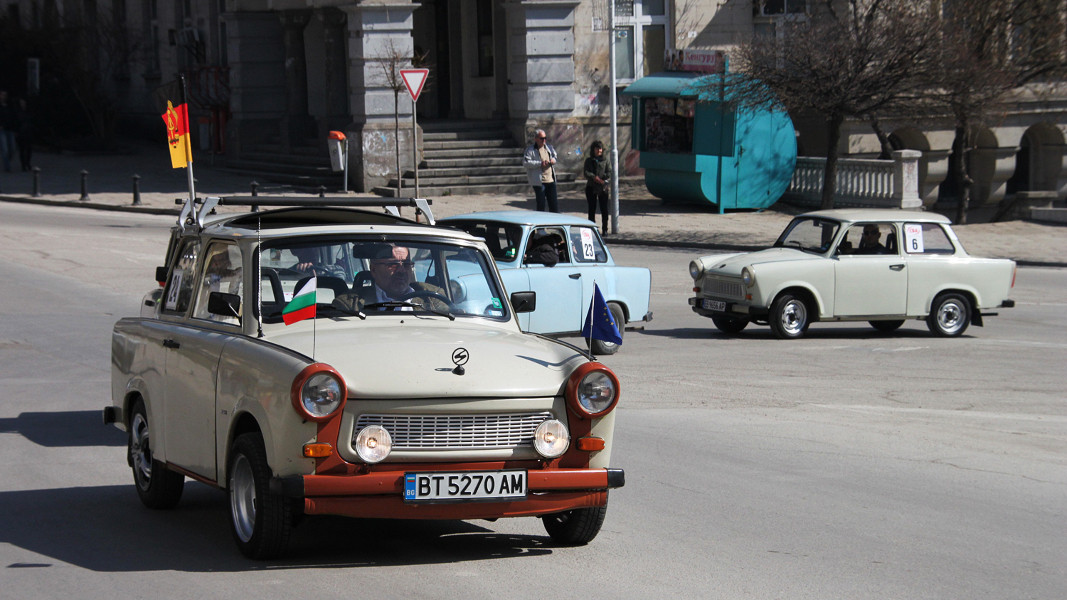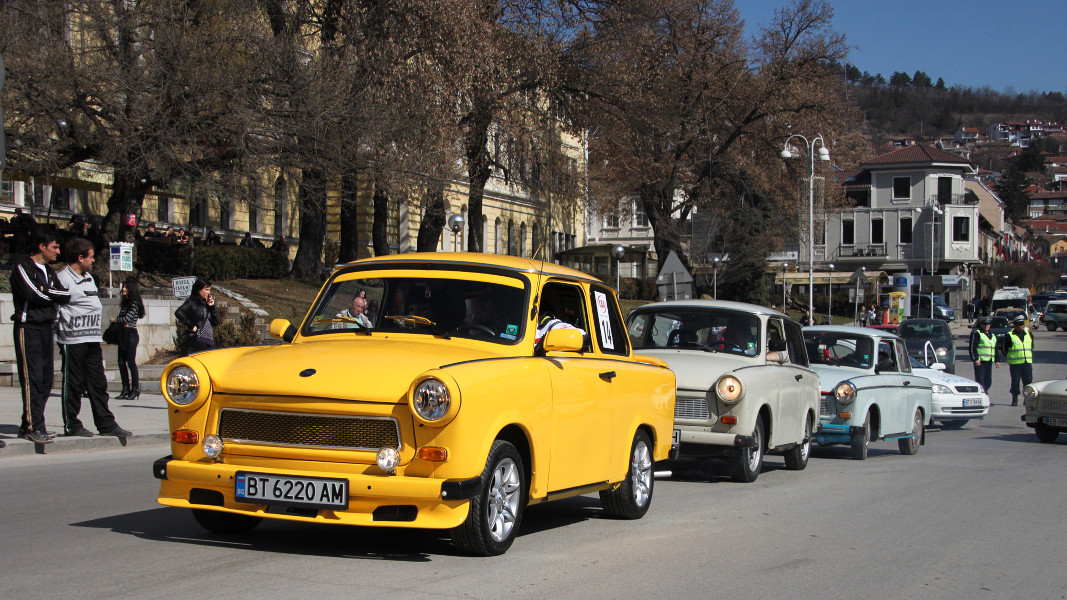The 12th edition of "Trabant Fest" in Veliko Tarnovo is an occasion for gathering of the owners and admirers of the East German brand of cars produced in the city of Zwickau between 1957 and 1991. There are currently 29,781 Trabant cars registered in Bulgaria, according to traffic police statistics. However, there is no information on how many of them are in motion. Some of the owners of this interesting vehicle, but also many Trabi fans, will join the traditional march of Trabants.
As part of the cultural calendar of the old capital, the festival takes place on the Saturday before the city holiday celebrated on March 22. So, this year the event will take place on March 18.

"We are expecting guests from Romania, who are traditional participants in the festival. In our northern neighbor, there are several Trabant fan clubs,” Milen Mihov, one of the organizers of the festival, says in an interview with Radio Bulgaria. “Most foreign fans come from Bucharest, but we also have guests from Brasov and other cities. In previous editions we were visited by guests from Great Britain, Germany and Russia, but because of the war in Ukraine, Trabants from Russia will not participate this year.”
About a hundred cars are expected to take part in the festival. After registration for participation they will head to the Municipality.
The cute cars attract approving glances and applause from passers-by. But the maintenance and storage of such old cars is a challenge that requires considerable resources and skills. Although most of the Trabants in this country are over 30-years old, not every one of them can be considered a car of historical value.
"According to traffic police data, there are over 30,000 cars in the country that are over 30 years old, but not all of them have the status of historic cars,” Mihov says. “In the 43rd National Assembly, my colleagues and I managed to pass for the first time a regulation of the concept of a historic vehicle, which we recorded in the Road Traffic Act. According to it, in order to be designated as such, a car must meet two requirements. The first is to be more than 30 years old, counted from the date of manufacture, and the second is to be in an adequate technical condition that is close to the level when it was manufactured. So a historic car cannot be just an old one, but one that is well-maintained and preserved."

As a member of the Bulgarian Association of Vintage and Classic Car and Motorcycle Clubs, he has been fighting for the achievement of several important goals:
"Our association aims to propose legislative and administrative changes that will enable the development of preservation, storage and presentation of classic cars, which undoubtedly represent part of the Bulgarian cultural, historical and technical heritage,” Milen Mihov points out. "Our task is to try to liberalize the regime for obtaining the status of ‘historic vehicle’. Also, the tax and insurance regime for these cars should be eased, as such cars are not for everyday use and usually move several days a month. It is very important to regulate the status of these cars and their use in an urban environment in the backdrop of the ever-increasing environmental requirements."
A Christmas tree with Bulgarian decorations has been placed in a central location at the Griffin Museum of Science and Industry in Chicago. For the fifth consecutive year, Bulgarians living in Chicago crafted the lavish decoration of the Bulgarian..
The usurpation of cultural heritage is one of the many inevitable consequences of any military conflict, both historically and today. Until the end of the war in Ukraine, it is impossible to adequately analyse the extent of the damage caused to the..
Athens plans to modernise the Greek army by 2030 Greece's Defence Minister Nikos Dendias presented the plan for changes in the army to the parties in parliament. The reforms will cover all three branches of the military. By 2030, 33 units..
The traditional Bulgarian Christmas picnic, organized by the Bulgarian Cultural and Social Association "Rodina - Sydney" and the Bulgarian School..

+359 2 9336 661
